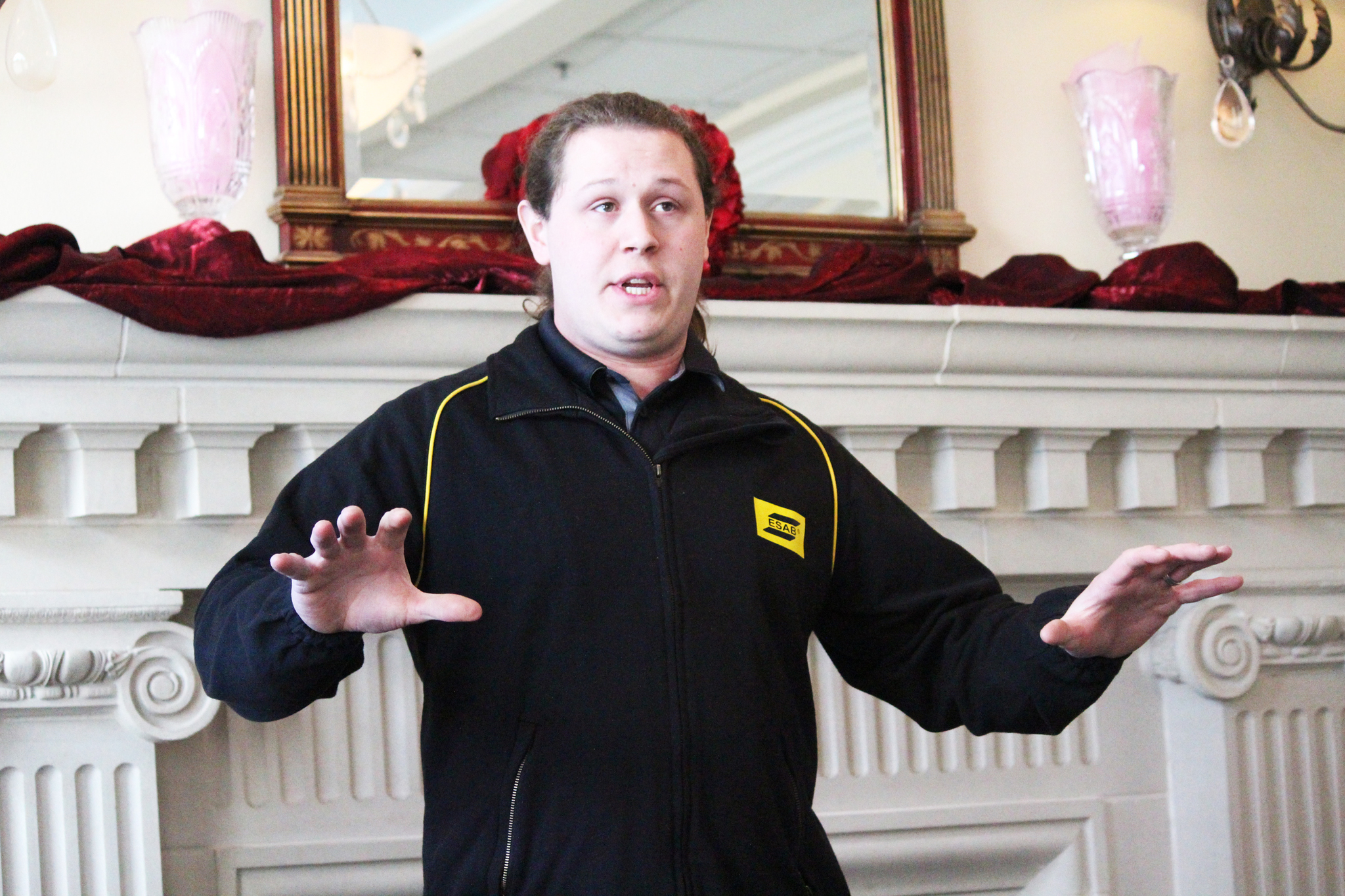Getting a job after incarceration and transitioning back to life outside is looking a little easier for inmates at the Wildwood Correctional Complex thanks to a new vocational program.
Michael Zener, an adult probation officer with the Alaska Department of Corrections in the Wildwood Transitional Program, presented updates on a new program designed to connect offenders currently serving time with local employers during a Soldotna Chamber of Commerce luncheon Tuesday. He told the small gathering of people at Froso’s Family Dining about the Vocational Work Release Program, a recent addition that kicked off in fall 2016 and is closely related to the existing Work Release Program, which has been running for about four years.
Offenders who meet certain criteria are hired by local businesses, allowed out of Wildwood to do their job and are paid for their work. The program fits in with the offender re-entry program being used by the Department of Corrections across the state, Zener said, and is the first of its kind in Alaska.
“Each candidate is expected to complete all recommended … court ordered programs based off of their risk needs assessment,” he said. “Their risk needs assessment they get very quickly once they come to jail, and then we use those assessments …. to recommend them to programs.”
Programs like the vocational work release help Wildwood inmates work toward a smooth re-entry after they are released, Zener said. There are currently five employees from Wildwood working jobs at local businesses in the central Kenai Peninsula. Through those jobs, the offenders are given the ability to pay off restitution if they have it, Zener said.
One of these employees is Thomas Lorah, who started at the Everything Bagels Kenai location in January. The 35-year-old grew up in Anchorage and has been serving time for about six years. He said when he got to Wildwood, he asked about participating in a cooking apprenticeship and the baking apprenticeship offered through the Wildwood Transitional Program was suggested for him.
“I started it, I loved it,” Lorah said. “I really have a passion for baking, I really enjoy it. The staff there has been tremendous in helping me with hands on (work), with recipes, showing me how to do things, getting the experience to where I can get out and actually have a job when I do get out.”
Lorah spent three and a half years completing the 6,400-hour apprenticeship.
Zener and Tim Ward, a vocational instructor, used the luncheon to put out a call to business owners who might want to participate in the new program. Currently, as they did with Everything Bagels, staff members at Wildwood are reaching out to business owners to ask if they’d be interested.
Zener said there has been a small amount of pushback from some businesses that have been approached, and that some employers have questions or concerns about the program. Often, those who are concerned feel that way because they have been burned by an employee in the past and want to make sure it won’t happen again, he said.
The threshold for inmates entering the work release program is high, Zener and Ward explained. Offenders who have committed more serious crimes are not eligible at all. Prior to being considered for the program, an offender’s criminal history, a mandatory Offender Management Plan and their institutional conduct are all reviewed, Zener said.
More than that, Zener said the program aims to connect specific offenders with specific employers whose business and personality will make a good fit.
“For instance, Thomas was a great fit for Everything Bagels,” he said. “In fact, we kind of had Thomas in mind when we were down and we talked to Pamela (Parker, the owner).”
The employees are also watched over during their work to make sure they stay on track.
“All the facilities get random inspections,” Ward said.
“These guys come down and they do spot checks, but they also get bagels so I’m not sure…,” Lorah joked of Ward and Zener.
Besides finding businesses willing to take on employees from Wildwood, the program faces the challenge of reliable transportation on the peninsula.
In other states with similar programs, Zener said employees have the option to walk to and from jobs or take more accessible public transit. Right now, employers participating in the program are bringing the employees to and from work every day themselves, Zener said.
“We need help,” Zener said. “If anybody knows of anything you can help us out with when it comes to transportation — and all I’m talking about is to and from. Getting an … employee to and from employment, if anybody has any suggestions (or) ideas … we’d be more than happy to entertain any solutions or any ideas that you might have for the program.”
The program does not serve women, who cannot be housed at Wildwood long-term and are sent to Anchorage to fulfill sentences longer than a few months, Zener said.
Those who are not eligible for the vocational work release program still have the option of other vocational programs offered through Wildwood, like welding and construction courses, as well as a community work program.
Megan Pacer is a reporter for the Peninsula Clarion. She can be reached at megan.pacer@peninsulaclarion.com.


